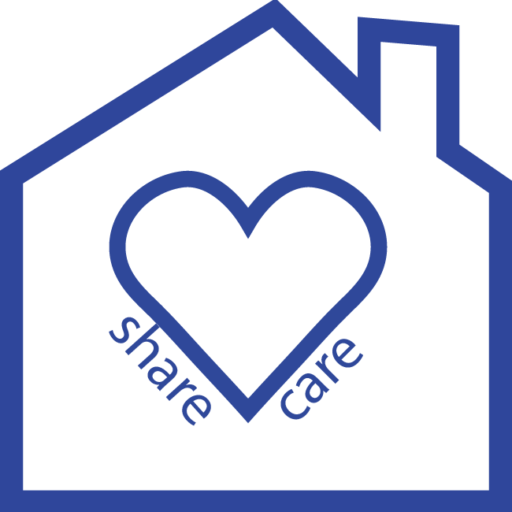Permanent Supportive Housing
Permanent Supportive Housing (PSH) can provide a stable living situation to people with significant barriers to housing, such as a long history of homelessness and disability. Housing is paired with access to long-term supportive services—including mental and physical health services, substance use recovery, and vocational training—helping people to stay housed
All eligible households must be referred through the Pierce County Coordinated Entry System.
Requirements

Must
Must contact Coordinated Entry by calling 211 for a referral to Share & Care House, before application into the PSH program can begin. Head of Household must meet the HUD definition of Chronically Homeless. Head of Household must have a disabling condition as defined by HUD. Must not exceed Income Limits determined by Pierce County Community Connections.
Screening Criteria
Program openings are available to individuals over 18 years of age of any race, color, gender, sexual preference, religion, national origin or handicap. Applicant must cooperate fully with intake process providing all necessary documentation and information requested. Applicant must willingly sign Policies & Procedures and Rental Agreement agreeing to all terms of the agreement. Program participants will not be denied for the following reasons:
- Having too little income
- Active or history of substance abuse
- Having a criminal record with exceptions for state-mandated restrictions
- History of Domestic Violence
Forms of Assistance
Program participants and members of the household are eligible to receive Supportive Housing in the form of rental assistance and Supportive Services which may include:
- Upon intake, complete a needs assessment that will determine basic needs, such as:
- Food, clothing, home furnishings, medical, transportation, etc.
- Meeting with a Housing Advocate on a monthly basis to:
- Review Service Plan, which may include:
- Review of short term & long term goals as outlined in Housing Stability Plan.
- Review program participant’s portion of rent and financial budget.
- Community and social services available.
- Review supportive services available
- Complete unit inspection for health and safety.
- Review Service Plan, which may include:
Independent Housing Opportunity
- Supportive Housing for five chronically homeless disabled families within two bedrooms unit in Puyallup, WA
- Case Management to assist the families as they navigate the available options which will help them to regain their personal independence
Scattered Site Housing
- Supportive Housing provided throughout Pierce County to over 140 households.
- Housing Advocate to assist the individuals and families as they pursue the available options which will help them maintain stable housing and regain their personal independence
FAQ
PSH Frequently Asked Questions
HUD adopted the Federal definition which defines a chronically homeless person as
“either (1) an unaccompanied homeless individual with a disabling condition who
has been continuously homeless for a year or more, OR (2) an unaccompanied
individual with a disabling condition who has had at least four episodes of
homelessness in the past three years.” This definition is adopted by HUD from a
federal standard that was arrived upon through collective decision making by a
team of federal agencies including HUD, the U.S. Department of Labor, the U.S.
Department of Health and Human Services, the U.S. Department of Veterans
Affairs, and the U.S. Interagency Council on Homelessness
A disabling condition means
(1) a disability as defined in Section 223 of the Social Security Act;
(2) a physical, mental, or emotional impairment which is
(a) expected to be of long-continued and indefinite duration,
(b) substantially impedes an individual’s ability to live independently, and
(c) of such a nature that such ability could be improved by more suitable housing conditions;
(3) a developmental disability as defined in Section 102 of the Developmental Disabilities
Assistance and Bill of Rights Act;
(4) the disease of acquired immunodeficiency syndrome or any conditions arising from the etiological
agency for acquired immunodeficiency syndrome; or
(5) a diagnosable substance abuse disorder.
Share & Care House will not maintain a waiting list for an Permanent Supportive Housing Programs.
Program participant must be the tenant on the lease or sublease for a term of at least one-year that is renewable and is terminable only for cause. The lease or sub-lease must be renewable for a minimum term of one month.
Program participant is responsible for all utilities outlined in Rental Agreement. Utility allowance will be subtracted within the Tenant Rent Calculations, if utilities are to be paid by the tenant.
Unit must pass a Housing Quality Standards inspection annually. Notice may be given if the results are not within acceptable standard due to program participant negligence. Program participant Home Inspection will be completed by Share & Care House staff monthly for Health and Safety.
- Results of the Home Inspection must be meet or exceed standards.
- Program participant is permitted one week to increase results from Needs Improvement to acceptable standard. Notice may be given if the results are not within acceptable standards within the one week timeframe.
The number of bedrooms permitted will not exceed one room per family member. If household composition changes during the term of assistance, Share & Care House may relocate the household to a more appropriately sized unit.
- Eviction or termination of tenancy from unit will be grounds for termination from the program
- Any act of fraud or misrepresentation will be grounds for termination of tenancy from unit and termination from the program
- Program participants will not be terminated from the program for the following reasons:
- Failure to participate in supportive services; excluding Annual Assessment of Services, Annual Income Review, monthly visits, and monthly unit inspections
- Failure to make progress on service plan
- Loss of income or failure to increase income
- Being a victim of domestic violence
